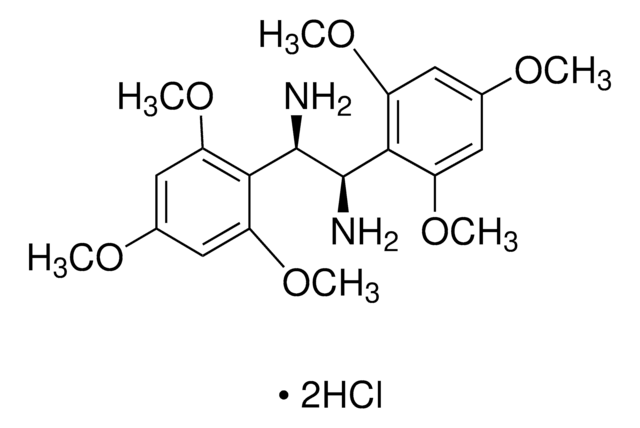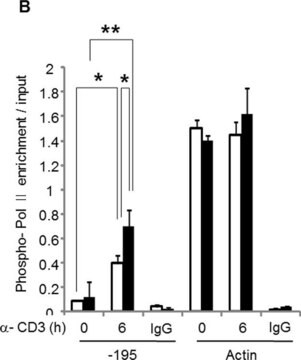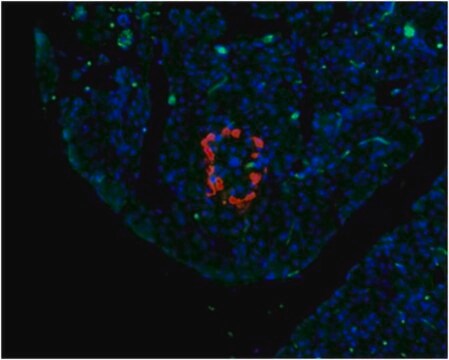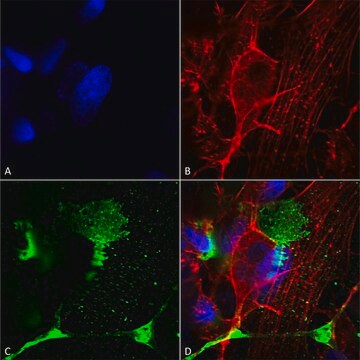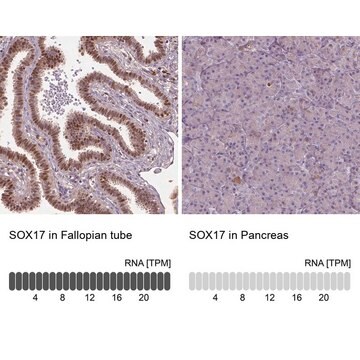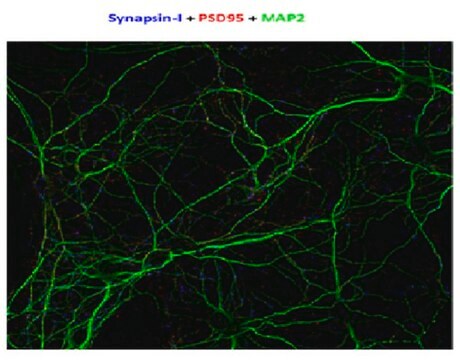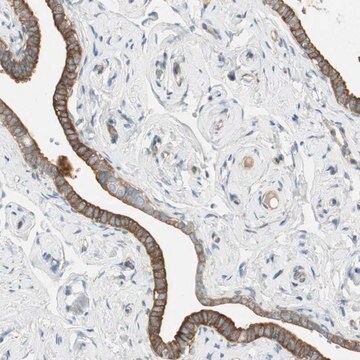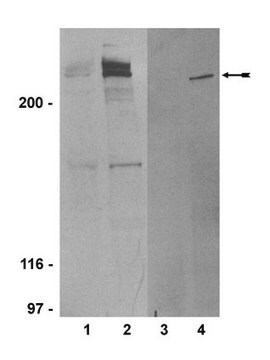MABN1584
Anti-Synapsin-2 Antibody, clone 19.21
clone 19.21, from mouse
Synonyme(s) :
Synapsin II, Synapsin-2
About This Item
Produits recommandés
Source biologique
mouse
Niveau de qualité
Forme d'anticorps
purified immunoglobulin
Type de produit anticorps
primary antibodies
Clone
19.21, monoclonal
Espèces réactives
rat, human, mouse
Technique(s)
activity assay: suitable
immunohistochemistry: suitable (paraffin)
immunoprecipitation (IP): suitable
western blot: suitable
Isotype
IgG2aκ
Numéro d'accès NCBI
Numéro d'accès UniProt
Conditions d'expédition
wet ice
Modification post-traductionnelle de la cible
unmodified
Informations sur le gène
human ... SYN2(6854)
Description générale
Spécificité
Immunogène
Application
Western Blotting Analysis: A representative lot detected exogenously expressed wild-type and mutant (Y236S, G464R) human synapsin II in HeLa cells and Syn2-/- murine neurons transfected with the respective constructs (Corradi, A., et al. (2014). Hum. Mol. Genet. 23(1):90-103).
Western Blotting Analysis: A representative lot detected synapsin IIa/IIb, but not Ia/Ib, in rat brain cytosolic extracts (Vaccaro, P., et al. (1997). Brain Res. Mol. Brain Res. 52(1):1-16).
Immunoprecipitation Analysis: A representative lot immunoprecipitated synapsin IIa/IIb, but not Ia/Ib, from rat brain synaptosomal preparations (Vaccaro, P., et al. (1997). Brain Res. Mol. Brain Res. 52(1):1-16).
Enzyme Assay Analysis: A representative lot, when added 2 hours prior to cAMP, prevented PKA-catalyzed phosphorylation of synapsin IIa/IIb in an in vitro kinase assay using rat brain synaptosomal preparations (Vaccaro, P., et al. (1997). Brain Res. Mol. Brain Res. 52(1):1-16).
Neuroscience
Developmental Neuroscience
Qualité
Western Blotting Analysis: 0.25 µg/mL of this antibody detected Synapsin-2 in 10 µg of rat brain tissue lysate.
Description de la cible
Forme physique
Stockage et stabilité
Autres remarques
Clause de non-responsabilité
Vous ne trouvez pas le bon produit ?
Essayez notre Outil de sélection de produits.
Code de la classe de stockage
12 - Non Combustible Liquids
Classe de danger pour l'eau (WGK)
WGK 1
Point d'éclair (°F)
Not applicable
Point d'éclair (°C)
Not applicable
Certificats d'analyse (COA)
Recherchez un Certificats d'analyse (COA) en saisissant le numéro de lot du produit. Les numéros de lot figurent sur l'étiquette du produit après les mots "Lot" ou "Batch".
Déjà en possession de ce produit ?
Retrouvez la documentation relative aux produits que vous avez récemment achetés dans la Bibliothèque de documents.
Notre équipe de scientifiques dispose d'une expérience dans tous les secteurs de la recherche, notamment en sciences de la vie, science des matériaux, synthèse chimique, chromatographie, analyse et dans de nombreux autres domaines..
Contacter notre Service technique
